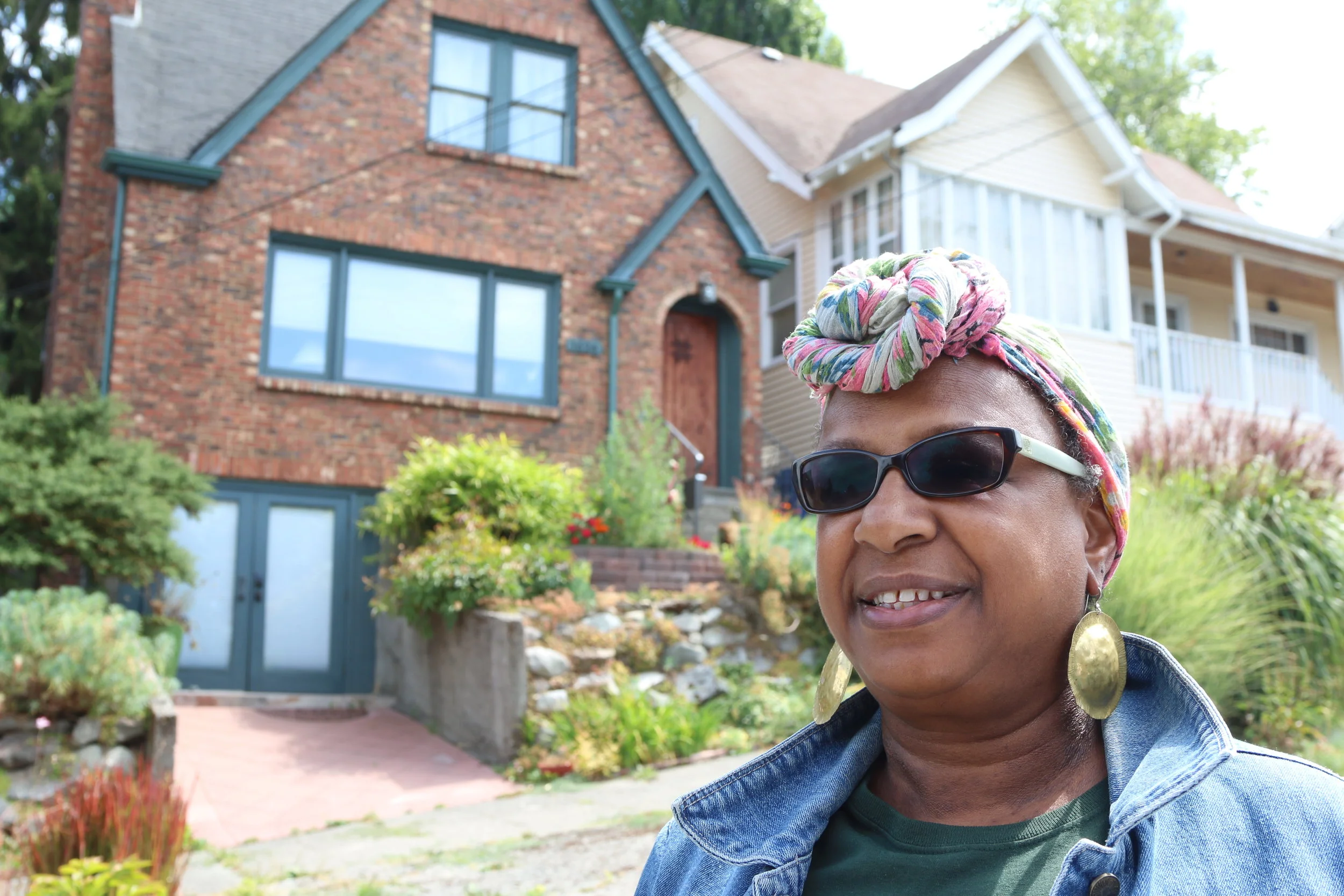Photo by Inye Wokoma
Phyllis Yasutake
My uncle was Chairman of CORE (Congress of Racial Equality), and wherever there was a Safeway, there was a Tradewell right across, and they wouldn't hire black people, so Uncle Walt turned to a bunch of CORE members and said, "Come on, we're gonna go."
And we would go into the stores. Stores at that time actually closed. They had a closing time. We'd go there like at 5:30, 5:45, and they closed at 6, and fill up dozens of carts of perishable things. And I'd just be running around the store throwing stuff in Uncle Walter's cart, and he'd say, "No no no no, things that have to be put back." I said, "Everything has to be put back." He said, "No, tonight. Don't bring no canned goods or loaf of bread, you know, bring some ice cream and hamburger and cheese and milk that has to go back into those frozen places." In other words, people would have to stay overtime, so you'd fill up all these carts full of perishables, roll up to the counter and then walk out the door. And we did that at Tradewell, and we'd go across the street at Safeway, and always right before closing.
Most of the people doing the shopping, CORE had a large white population of members, so most of them were white, except for me and Uncle Walter, and so nobody hassled them at first, until they showed up with a big cart full of ice cream, cheese, eggs, milk, butter, stuff that you could not let sit overnight until the next shift came in. It had to be put back right now. So that meant the staff getting off of work couldn't leave, they had to go and do it and get paid overtime and cost the store money. And then, Safeway, eventually Safeway caved in and signed a contract to stop discriminating against people.


